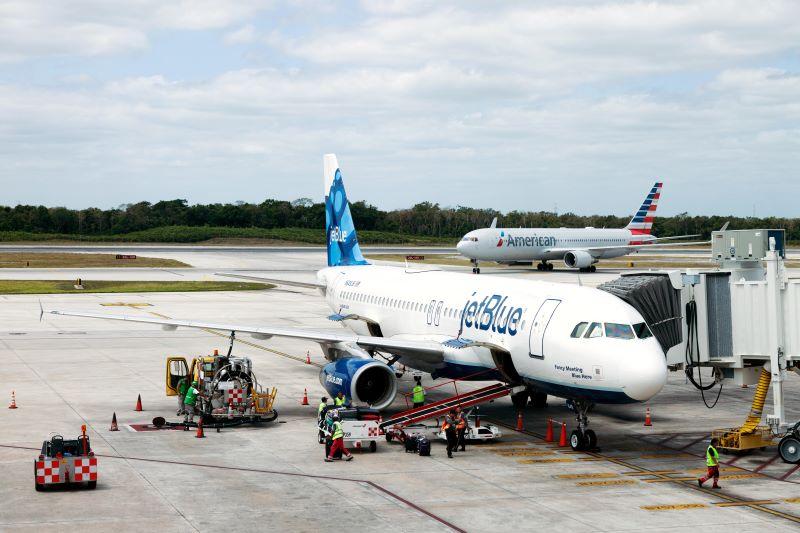
JetBlue Airways and American Airlines are proceeding with a wind-down of their Northeast Alliance (NEA), though the two remain split on a decision to appeal.
“We are disappointed to be ending popular benefits like codesharing and reciprocal loyalty benefits,” JetBlue’s NEA VP Dave Fintzen said. “With the court’s recent ruling and the termination of the NEA, we have to sunset them in short order.”
JetBlue on July 5 announced it would turn its focus toward its potential merger with Spirit Airlines rather than appeal a federal ruling that found the alliance with American to be anticompetitive. American does intend to appeal, calling the judicial decision “erroneous.”
Under the initial wind-down steps announced by both airlines on July 14, codeshare flights between the two will no longer be available for sale beginning July 21. Loyalty benefits will be available for members of either airline’s program prior to that date.
“This is just the first step in the wind-down process that will take place over the coming months,” American said. “We will continue to work with the JetBlue team to ensure customers who have existing codeshare bookings can travel seamlessly without disruption to their travel plans.”
The federal ruling stemmed from a U.S. Justice Department (DOJ) antitrust suit, one of two the agency has initiated against JetBlue including a bid to block its merger with Spirit, a case that goes to court in October. The NEA case is scheduled to return to court on July 26.
Ahead of the NEA’s return to court, the judge has sought more details from American and JetBlue asking that by July 19 he receives “joint or separate positions regarding what, if any, impact that [JetBlue’s] termination [of the NEA] has on the proposed terms of the final injunction and judgment in this case.”
An injunction is set to take place 21 days after the court issues a final judgment.
Before the court required the dissolution of the NEA, JetBlue warned in regulatory filings that an unfavorable ruling on the alliance could have an “adverse impact” on its business, financials, and operations, including operational and marketing costs, “which would not be recoverable.” In its July 14 release the airline said it would issue refunds, where needed.
“To the extent any individual customers are impacted, JetBlue will reach out individually for any required re-accommodation or refund,” the airline said.
Meanwhile, JetBlue also faces significant costs should its acquisition of Spirit fail to gain approval.
Under terms of the proposed deal, JetBlue would acquire the Fort Lauderdale-based ULCC for $33.50 to up to $34.15 per share in cash, depending on timing of closing, including regular payments of 10 cents per share per month it has been making to Spirit Shareholders since the start of the year and will continue to make until the transaction is closed or terminated. JetBlue has projected a combined company with Spirit would have annual revenues of approximately $11.9 billion.
Should the deal fall through for antitrust reasons, JetBlue has agreed to pay Spirit a “reverse break-up fee” of $70 million and the stockholders would be set to receive $400 million less any amounts paid prior to termination.
JetBlue will report its second quarter earnings on Aug. 1.
